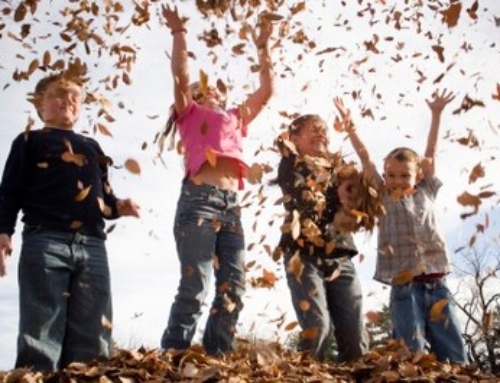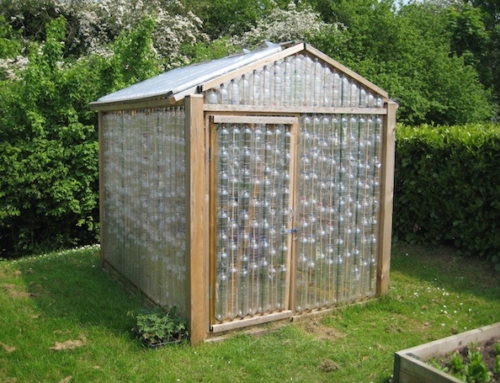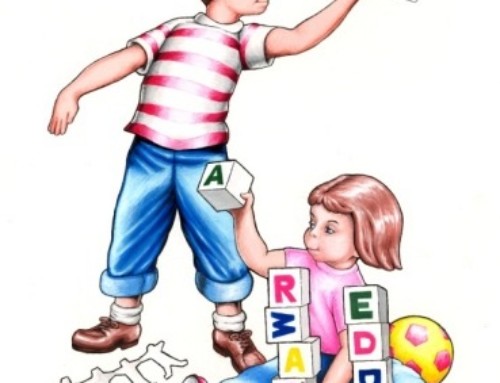By Tracy G. Cassels
I’ve become very contemplative recently when it comes to my daughter’s play. I realize I spend far too much time as her playmate, and frankly, I’m 33, I’m hardly a good substitute for another child aged 0-8 (who really should be her playmates). But more than that I’m aware that I may actually be doing harm to her by being her playmate as often as I am. I do not interact the way children do, I don’t help her learn her social environment of other children the way other children do, and when I hover close, I can’t help but keep her from exploring her full potential because I can’t help but worry about falls from rocks, bruises, hurt feelings, and every other normal aspect of play. There are times where I can be a great playmate too, so I’m not trying to say that it’s all bad, but that I’m aware that kids need kids sometimes, especially for play.
The problem was that I assumed it may just be me. Then I went to the park with eyes wide open. I went with a friend and her 10-month-old boy and my daughter and as we walked up to the play area of the park, which was enclosed with a fence, I was startled. There was not a single child who was not within 3 or 4 feet of his/her parents. Not just the very young ones or the ones climbing on the more “dangerous” things, but all kids. And because of this, it seemed that many of the children weren’t playing with each other unless they arrived together and the parents of each child were standing together chatting, 2 to 3 feet from their kids and consistently directing play. I had to admit to myself that that’s often been me and watching it from the side, I felt sad.
Is this what going to the park has become? As a child, I went to the park in our neighbourhood with friends. Perhaps a parent came along (if there was a preschool aged kid, just to keep an eye), but rarely were they ever involved in play. Going to the park was about playing with kids. I played with my parents too when kids weren’t around and that was great, but when kids were around, I expected to play with them. Now it seems going to the park is another way in which parents play with their children, which is great when there are no other kids around or it’s a special event, but we seem to be replacing children’s social engagement with more adult-oriented time. Some might argue that there’s no difference but in fact there is. Research has found that children actually need open-ended, non-directed play with other children to thrive socially. As Christine Gross-Loh covers in her book Parenting Without Borders (all research based), one of the differences between children of today and children of the 1940s (where play was common, despite many other problems we might see), the average American five-year-old has the same emotional self-regulation as a three-year-old from the 1940s.
As for my daughter, I let her run around the park by herself. I kept an eye on her from a distance and watched her first simply engage with herself, enjoying time at the various little “stations” around the park. Though she’s normally very social, it seemed that she wasn’t able to break in to play with another child given the close level of attention and involvement of other parents. At one point she came looking for me. I got up and was with her in moments, but not before another mom, standing right beside her child, glared at me like I was a horrible parent. Later, she would find a playmate – a young boy around her age who was at the park with his grandmother. To be honest, I don’t know what they ended up doing except that they were in the sand box. After, the grandmother and I spoke a bit. I couldn’t stop myself from apologizing, but explained that I wanted my daughter to explore on her own. It was reassuring to have this woman first tell me never to apologize, but second that my daughter seemed very independent already.
My problem now is that I have the first realization coupled with the second realization that I may not have a place to regularly go with it. That is, I’ve realized my daughter needs unstructured play with other children, something she gets regardless a few times a week. But I have also realized that outside of me “scheduling” this play, it is unbelievably difficult to come by. Part of me wishes I could create my own park where parents have to stay out unless with a child under a year of age or there’s a mishap in the park that requires their attention. Imagine the type of learning and socialization that would occur?! Not just between children but parents as well! Separating from your child to discuss the experiences and thoughts of another parent… well, I can dream.
But perhaps if more of us consider that despite our desire to play with our children and to guide them, that they may (in the end) do better with other kids some of the time, we can start to build the type of open environment we want for our children. We all want sociable, independent, caring, and empathic children, right? Let’s help them get there by giving them the time to socialize with those that will truly bring out those qualities: Other kids.
[Image Credit: It’s All Kids Play]




Great article! I’m lucky to live in a place with freer children that play with each other rather than with parents.
Also, is this line missing a few words? ” own park where parents have to say out until with a child under a year of age or there’s a mishap in the park that requires their attention.”
Thank you! And yes, I’ll fix that when I have a chance 🙂 Oops!!
I wrote about this at the beginning of playground season this year… I too have felt the stares of parents who think I am neglecting my child… but I have to say every time he does something he couldn’t do last year, without my assistance, and I see his proud look of accomplishment, I know I am doing something right! (even if it is just that one thing)
http://oneorganicmama.blogspot.com/2013/04/building-confidence-independence.html
I have just stumbled upon your website for the first time and really appreciate your approach and the topics you choose to explore. As I’m currently reading Neufeld’s “Hold on to your kids,” I have some questions coming up when reading your article. Although I have some healthy skepticism about Neufeld’s peer-orientation theory, I believe he has some valid points and though I don’t think you’re speaking against them in your article, I’d love to hear your thoughts (assuming you’re familiar with his work!).
Neufeld contends that we don’t NEED peer interaction at a young age and our socialisation actually comes from more mature people in our lives (parents, caregivers, etc.) – that they’re the one to offer healthy skills and awareness. His response to the finding that children have slower emotional self-regulation these days would probably be that it is actually due to too much peer interaction and children not being attached to those modelling healthy, mature self-regulation.
Note that none of these are my theories and with one young toddler myself, I’m still listening into what feels right to and makes sense for me and my family! I just noted some perhaps conflicting proposals from what seem to be aware, educated and attachment-focused individuals who seem to be committed to helping us all be more connected to our own knowing and intuition in our parenting!
I look forward to reading more of your work!
Hi Twyla,
Welcome 🙂 I know of Neufeld and I agree in some of his work and not others. Most of his research and early work was with teens and that’s where peer influence can be negative. I would say, though, that by 3 years of age, evolutionarily speaking (and cross-culturally), other children have to be the influences for our kids. In fact, though only qualitative, it seems children with high levels of peer interactions in other cultures have better emotion regulation than our children with limited and guided interactions.
That said, it is highly probable that the types of interactions happening in our society are not healthy, but again, I feel this has more to do with parents than children. Parents who are constantly interfering in their children’s playtime create abnormal and unnatural play for their children.
And of course, families can remain first and foremost as influences while still providing children with the type of peer interactions they expect (evolutionarily speaking) and should engage in. It’s all in how we respond early (first few years) and how we respect their independence and dependence later!
t
I really don’t think you have to worry too much about peer interaction and socialization of a child until after 2 years of age. Babies need their mothers (and their fathers) early on in their lives.
Yep, that’s a huge part of this site. But we also cover toddler years. My daughter, for example, is 3 so peer socialization is something I’m acutely aware of and like to write about too 🙂
As my 11 month old gets more active, I’ve been searching out more playgrounds. When I find an outside playground that suits him best (achievable but challenging equipment) there’s been no one else there but us! So I took him to a popular playground where there were other kids around the same age and ability as my son, but it wasn’t early toddler friendly at all – non of the ‘toddler-friendly’ equipment was accessible without parental help!
Must keep looking for the perfect combination of other people and good equipment! (Or scare up some people to come with us to the park)
I think our culture makes it hard for parents to let go. The messages we continue to receive are that if something bad happens to your child (injury, abduction, bullying, etc.) its because you were not vigilant enough. Parents who hang back (and I am sometimes one) are given judgemental glares or have other parents hop in and “help” my child when I am trying to give them some freedom to just be. Other times I must seem like the helicopter mom constantly hovering because I am responding to the needs of my 2 or 4 year-old who seem desperate that day to play only with Mommy or to have Mommy near.
I appreciate your observations and musings as I too constantly check if what I am doing is the “best” thing for my children and I have read Neufeld’s book and think that there is something to be said for exposing your children to people of many varying ages (which I think was the crux of his argument- that our educational system focuses on socialization with peers of around the same age where children would probably benefit from experiences with people of all ages – babies to seniors- on a more consistent basis)
I also think our over-extended culture doesn’t allow for many opportunities for free, unstructured play. Kids as young as infants are as scheduled as ever and between their activities and the parents obligations (work, other children, families, chores, etc.) there is little time to let kids just run around together.
I think the fact that you check in and wonder if what you are doing is the best thing for your child means she will benefit from a caring, adaptable mother most of all.
Since he was about 14mo I have been letting my son go off by himself at the park/playcentres as much as he wants, which is a lot. He is happy to play with me if there are no older kids around (he doesn’t really notice kids his own age). But when there are bigger kids to follow about, that’s what he wants to do and he bats me away if I come near him. So I’ve been staying away from him when he has made it clear he wants that little bit of independence. Tbh, at first staying away from him was a lot harder than following him. It’s nerve-racking to watch him climb up on climbing equipment and practice the more grown-up ways of doing things he sees the older kids doing when I’m not right under him, ready to catch him. But I’ve taught him how to do things safely and I’m determined to trust him enough to give him a little freedom in what is in reality an incredibly safe and well planned environment. But boy do I get the stink-eye from other parents for being so “negligent” of such a young baby. (Not as much stink-eye as they give me later if they notice him nursing ‘at his age!’)
I don’t know what will happen as he gets older. I’d love to leave him out to play without me, but if none of his friends/neighbours are allowed to join him he won’t be getting a lot of social time. The only alternative I can think of is to buy a house with a lot of land and set him up with his own section of the garden, far away from the house, with stuff to climb on and a clubhouse for him to have as his own space and have an open invitation to his friends to come and play. Then leave them to their own devices unless they specifically want or need me. It’s not ideal, it’s not a patch on the freedom I used to have a child but it’s better than nothing.
[…] Evolutionary Parenting (via intersectionalparenting) Previous article Previous PostNext article Next Post […]
The problem I face is that my child hardly gets to interact with other kids because those kids are always with parents. I live in a city where kids interaction is almost absent
My son is 7 and the school he attends is amazing in this regard. The majority of the day is available for free play, in an environment rich in nature, art supplies, physically challenging equipment and books. There are less than 30 kids in the school aged from 5 to 11 and they all play freely together, with very loose supervision. He loves it and i love it. However, until he was about 5 (when he started school) he struggled to play with children, especially of his own age. I admit, being a new parent I stuck close to him. But I actually regret forcing so many play dates with kids his age before about the age of about 4. I desperately wanted to just let the kids play and chat with the parents but EVERY time I did that, a child would get hurt, often because my child lost his cool. I had to monitor the play closely and help them through those difficult moments. It was exhausting for both of us because I just don’t believe he was ready to learn those skills, he just didn’t have the capacity at that age. Not to say that is true of all kids, but you definitely have to read your child. On the other hand, I wish I had given him more freedom physically, because I feel my anxiety made him very hesitant and held him back. With my 13 month old daughter I have given her a lot more freedom and I am amazed at what she is physically able to do and how much joy she gets from climbing and moving. So, perhaps my experience is that yes, miss need more physical freedom at a younger age, but socially they need help until they are a bit older…